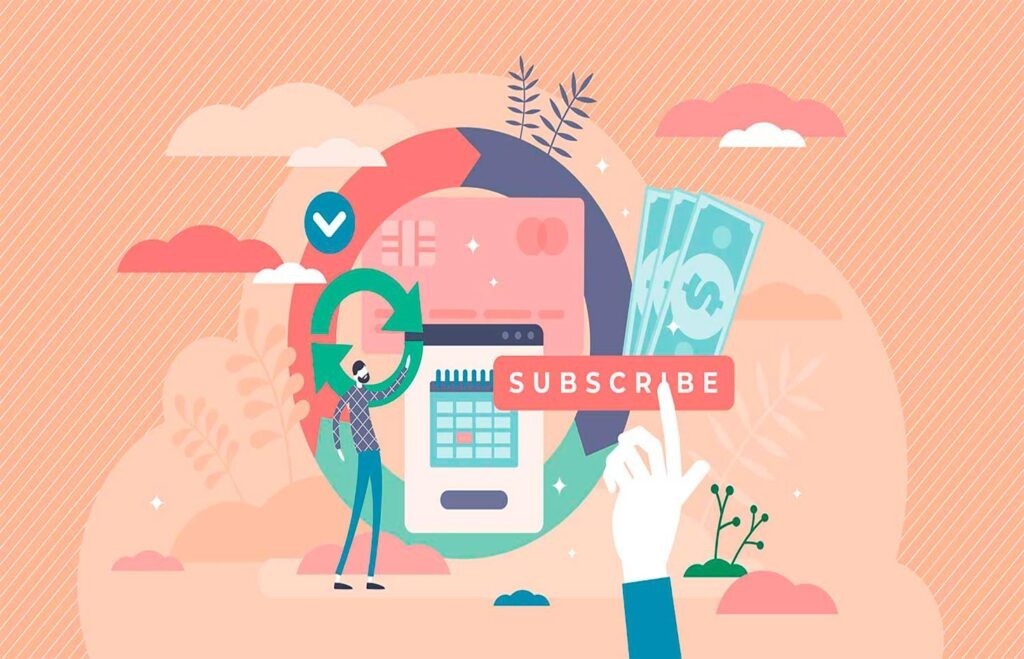Subscription-Based Products to Look Out for in 2024
In recent years, subscription-based products have revolutionized various industries, from media and entertainment to consumer goods and services. This business model has not only changed the way companies generate revenue but also how consumers interact with brands and products. In this article, we’ll explore the trends driving the rise of subscription-based products, provide insights into their impact on different sectors, and offer comparative and analysis tables to better understand this evolving landscape.

Introduction to Subscription-Based Products
Subscription-based products involve customers paying a recurring fee at regular intervals—monthly, quarterly, or annually—in exchange for access to a product or service. This model contrasts sharply with the traditional one-time purchase approach, offering benefits such as continuous access to updated content, convenience, and often a more personalized experience.
Trends Driving the Popularity of Subscription-Based Products
- Consumer Demand for Flexibility and Convenience
One of the primary reasons for the rise in subscription-based products is the growing consumer demand for flexibility and convenience. Subscriptions allow users to access products or services without the commitment of a large upfront payment. This model appeals to consumers who prefer paying smaller amounts over time and accessing a range of offerings on-demand.
- Advancements in Technology
Technological advancements have played a significant role in the expansion of subscription-based models. The proliferation of smartphones, high-speed internet, and cloud computing has made it easier for businesses to deliver content and services seamlessly. These technologies facilitate the management of subscriptions, enhance user experiences, and provide businesses with valuable data on consumer behavior.
- Personalization and Customization
Modern consumers expect products and services tailored to their preferences. Subscription-based models often provide personalized options, allowing users to customize their experiences based on their tastes and needs. This level of personalization is a significant draw, as it offers a more relevant and engaging experience compared to one-size-fits-all products.
- Economic Efficiency for Businesses
For businesses, subscription models offer a predictable revenue stream and foster customer loyalty. This model helps companies better forecast their earnings and manage inventory, as they can anticipate recurring revenue from subscribers. It also reduces the reliance on single large transactions and can help stabilize cash flow.
Impact on Various Sectors
- Media and Entertainment
The media and entertainment industry has seen one of the most significant transformations due to subscription-based models. Services like Netflix, Spotify, and Disney+ have shifted consumers from traditional media consumption to streaming platforms. These services offer extensive libraries of content for a monthly fee, challenging traditional media formats and distribution channels.
- Consumer Goods
Subscription boxes for consumer goods have gained popularity in recent years. Companies like Birchbox and HelloFresh deliver curated products or meal kits to consumers on a regular basis. This model provides convenience and surprises, as customers receive new and often personalized products without having to shop for them.
- Software and SaaS
The Software as a Service (SaaS) model has become a staple in the tech industry. Instead of purchasing software outright, businesses and individuals now pay for software on a subscription basis. This approach allows for regular updates, maintenance, and scalability, making it a preferred choice for many.
Comparative Analysis of Subscription-Based Models
To better understand the impact of subscription-based products, let’s compare different sectors and their adoption of this model.
| Sector | Model Example | Key Benefits | Challenges |
| Media & Entertainment | Netflix, Spotify | Access to extensive content libraries, convenience | High competition, content licensing costs |
| Consumer Goods | Birchbox, HelloFresh | Curated, personalized product delivery, convenience | Customer retention, logistical challenges |
| Software & SaaS | Microsoft 365, Salesforce | Regular updates, scalability, predictable costs | Dependency on internet connectivity, data security |
Insights from Subscription-Based Product Trends
Consumer Preferences
Subscription-based products cater to evolving consumer preferences for flexibility and convenience. The ability to access a wide range of options without significant upfront costs appeals to modern consumers who value personalized experiences and ease of use.
Business Strategy
For businesses, adopting a subscription model can lead to increased customer loyalty and stable revenue streams. However, companies must carefully manage customer expectations and ensure they deliver consistent value to retain subscribers.
Future Outlook
The trend toward subscription-based products is likely to continue growing, driven by technological advancements and changing consumer behaviors. Businesses that adapt to these trends and offer innovative, personalized solutions will be well-positioned to succeed in this evolving market.
Conclusion
The rise of subscription-based products represents a significant shift in how businesses operate and how consumers engage with products and services. By offering flexibility, personalization, and convenience, subscription models have transformed various sectors, including media, consumer goods, and software. Understanding these trends and their implications is crucial for both businesses and consumers as they navigate this changing landscape.




